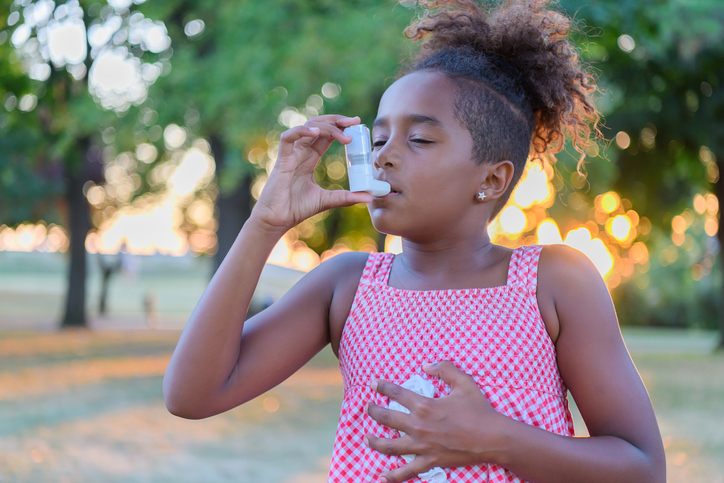
NIH-funded trial identifies asthma-associated gene networks affected by the drug.
A monoclonal antibody, mepolizumab, decreased asthma attacks by 27% in Black and Hispanic children and adolescents who have a form of severe asthma, are prone to asthma attacks and live in low-income urban neighborhoods, a National Institutes of Health clinical trial has found. This population has been underrepresented in previous clinical trials of asthma therapeutics. The findings were published today in the journal The Lancet.
The study investigators undertook an innovative exploratory analysis of gene activity in cells collected from study participants’ nasal secretions at the beginning and end of the trial to try to help explain how mepolizumab works and link this to its clinical effect. The antibody tamped down the activity of three networks of genes associated with airway inflammation and asthma attacks in the study population but did not reduce the activity of six other such networks.
“Asthma exacts a heavy toll, especially on disadvantaged school-aged children of color who live in urban areas,” said Anthony S. Fauci, M.D., director of the National Institute of Allergy and Infectious Diseases (NIAID), part of the National Institutes of Health and sponsor of the trial. “The results of this study indicate that more research is needed to develop therapies that substantially reduce asthma attacks among these children.”
Read more...







